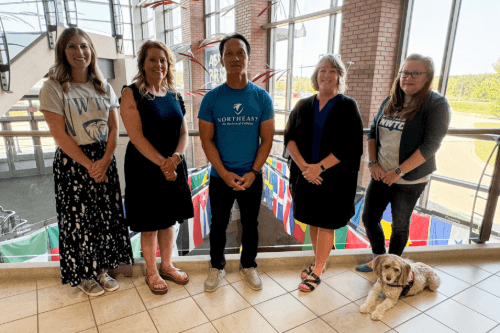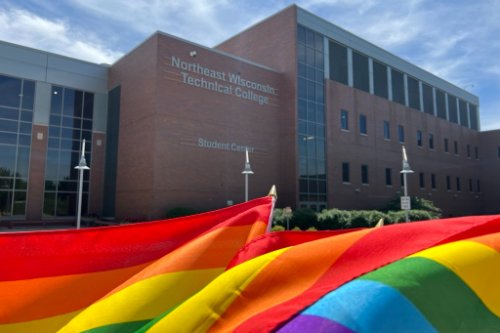
Disability Services empowers education
NWTC’s Disability Services ensures that students receive the support they need to succeed. As part of National Disability Employment Awareness Month, NWTC will host events about disability inclusion.
Cookies on NWTC's Website

We asked members of NWTC's Intertribal employee interest group discuss their favorite traditions and what Native American Heritage Month means to them.
 I don't recall knowing that Native American Heritage Month was a thing until I was in the Army and a leader asked me to share some information about my tribe as I was the only Native in our battalion. I thought that was strange, but realized I hadn't encountered many other Natives in my time in the Army and no one seemed to know much about us. It had always been treated like a novelty that I was Native in the Army and I was always proud to inform people that my tribe had "the biggest reservation East of the Mississippi (which is also the SMALLEST county in Wisconsin)," or something about our heritage or our persistence. I guess that made me realize we ought to use the platform provided to share our story because there just aren't enough people who know enough about us.
I don't recall knowing that Native American Heritage Month was a thing until I was in the Army and a leader asked me to share some information about my tribe as I was the only Native in our battalion. I thought that was strange, but realized I hadn't encountered many other Natives in my time in the Army and no one seemed to know much about us. It had always been treated like a novelty that I was Native in the Army and I was always proud to inform people that my tribe had "the biggest reservation East of the Mississippi (which is also the SMALLEST county in Wisconsin)," or something about our heritage or our persistence. I guess that made me realize we ought to use the platform provided to share our story because there just aren't enough people who know enough about us. One important intention of Native American Heritage month, like other months that honor heritage, is to challenge our perspective about the historical narrative and our current understanding of a people group. The nudge to seek those perspectives is a honoring practice and works to rebate an understanding that more honestly reflects the experience of all those who occupy the continent. This is especially important for First Nations people whose experience is often overlooked or told from others' perspective. To that point, Native American Heritage month holds a timely position given the American traditions to honor Columbus or the complicated Thanksgiving story.
One important intention of Native American Heritage month, like other months that honor heritage, is to challenge our perspective about the historical narrative and our current understanding of a people group. The nudge to seek those perspectives is a honoring practice and works to rebate an understanding that more honestly reflects the experience of all those who occupy the continent. This is especially important for First Nations people whose experience is often overlooked or told from others' perspective. To that point, Native American Heritage month holds a timely position given the American traditions to honor Columbus or the complicated Thanksgiving story. To pinpoint a practice or activity is difficult because they are all important but one that stands out to me would be the storytelling. Our stories explain why things are done the way they are and offer guidance in all aspects of life. For instance, the story of the corn husk doll and why she has no face is to remind us that no person is better than the next and to believe so would bring a great punishment. There are stories that tell how to parent, how to treat others and how our ceremonies came to be. I loved listening to the stories growing up and now tell them to my children.
To pinpoint a practice or activity is difficult because they are all important but one that stands out to me would be the storytelling. Our stories explain why things are done the way they are and offer guidance in all aspects of life. For instance, the story of the corn husk doll and why she has no face is to remind us that no person is better than the next and to believe so would bring a great punishment. There are stories that tell how to parent, how to treat others and how our ceremonies came to be. I loved listening to the stories growing up and now tell them to my children.

NWTC’s Disability Services ensures that students receive the support they need to succeed. As part of National Disability Employment Awareness Month, NWTC will host events about disability inclusion.

NWTC Dean of Regional Learning, Jan Scoville, reflects on the importance of National Coming Out Day and creating belonging for members of the LGBTQIA+ community.

NWTC Dean of Regional Learning, Jan Scoville, reflects on the importance of National Coming Out Day and creating belonging for members of the LGBTQIA+ community.